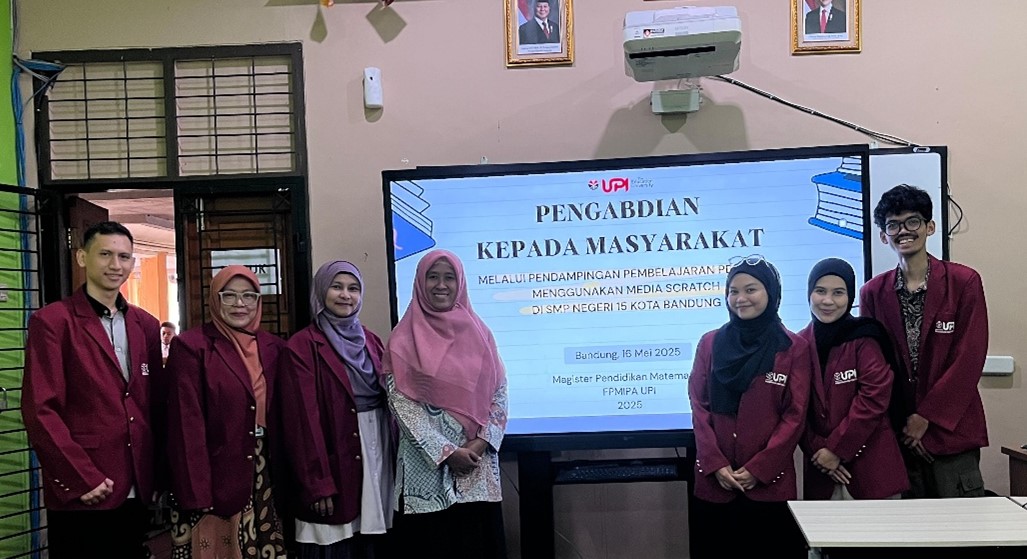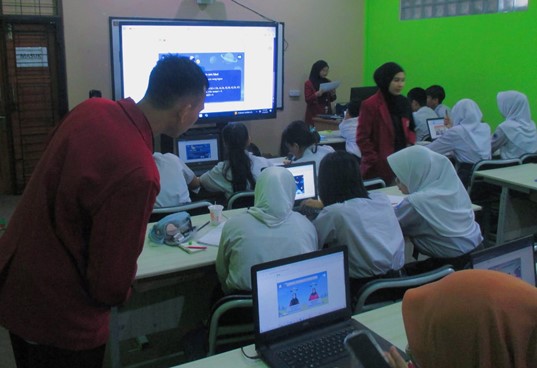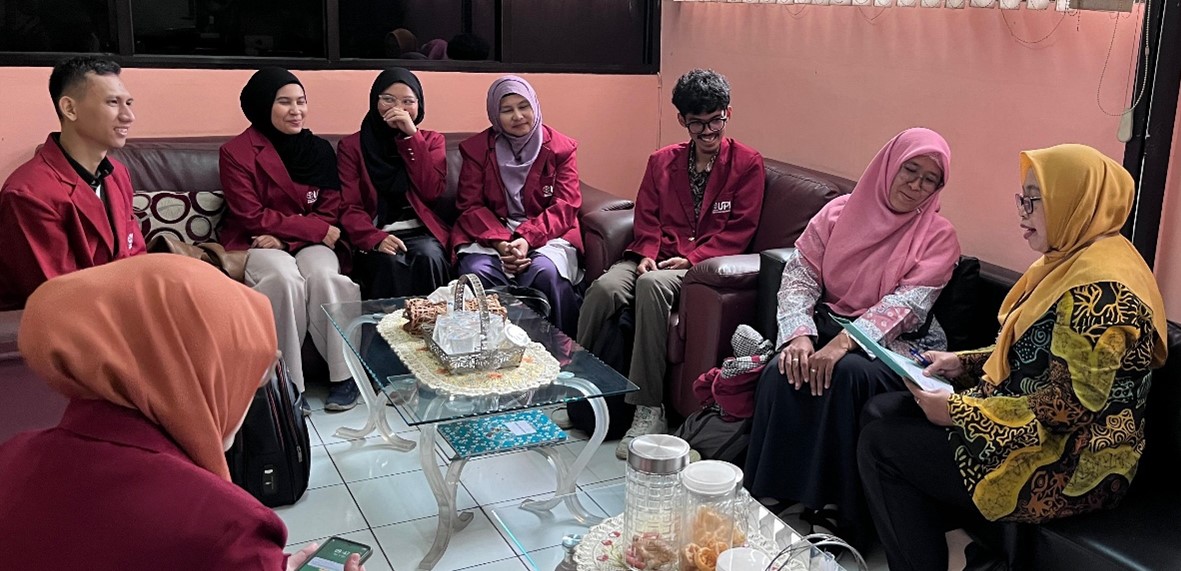
As a form of commitment in making a real contribution to the world of education, six Masters students of the Mathematics Education Study Program, Universitas Pendidikan Indonesia (UPI) supervised by Dr. Eyus Sudihartinih, M.Pd., successfully carried out a Community Service (PKM) activity with the theme “Probability Learning Assistance Using Scratch Media” at SMP Negeri 15, Bandung City. The activity was carried out on Friday, May 15, 2025. This activity took place with great enthusiasm and involved 30 grade VIII students as the main target.
This PKM aims to provide a fun, interactive, and meaningful learning experience in understanding opportunity material, especially theoretical opportunities and empirical opportunities. Through the Problem Based Learning model approach combined with Scratch application-based learning media, students are invited to understand the concept of opportunity not only abstractly, but also through a digital game entitled “Space Mission.”
The Scratch media used presents a combination of material illustrations, sample questions, and mission games that must be completed by students. Each mission is equipped with contextual-based questions designed to stimulate reasoning and improve students’ understanding of the concept of opportunity.
This activity began with the introduction of the student team as facilitators and model teachers, followed by apperception and implementation of a pretest to measure students’ initial understanding. Students were then divided into small groups and began to explore the material through Scratch media. In this process, students completed the Student Worksheet (LKPD) in groups and discussed as a class to draw conclusions together about theoretical and empirical opportunities. After learning, students were asked to fill out a media evaluation questionnaire, take a posttest, and listen to educational messages about the dangers of gambling associated with the opportunity material.

The results of the questionnaire showed that the majority of students felt happy, interested, and motivated in this learning. They said that the Scratch media was easy to use, fun, and made it easier to understand the material on probability. In fact, some students who initially did not like mathematics said that this activity made them more enthusiastic about learning, and provided some input for the development of media in the future to be more varied, contextual and fun.
From the results of the pretest and posttest analysis, it was seen that most students experienced a significant increase in understanding of the material on probability. The LKPD results also showed that students not only understood the concept, but were also able to apply it in the context of real problems. This is proof that the use of digital media such as Scratch can be an effective tool in learning mathematics.
The results of the follow-up interviews also confirmed that this learning had a positive impact on students’ perceptions of mathematics. They hope that learning like this can be applied to other materials with a similar approach.

In the post-activity communication session, the Principal of SMPN 15 Kota Bandung, Dra. Titiek Isbandiah, M.Pd expressed her high appreciation for the implementation of this PKM. She considered that the use of Scratch media in mathematics learning is a form of learning innovation that is very appropriate for today’s digital generation. Furthermore, she suggested that future media development can use a more varied context, adjusted to the environment and real experiences of students. In response to this, the new context referred to in social phenomena, daily life, or local culture will make learning and learning media more meaningful for students.
She also said that collaboration with students and lecturers from UPI is a positive step in bridging the development of learning innovation in schools, and hopes that activities like this can continue with media innovations that are increasingly developing and relevant to students’ lives.
This PKM activity is real evidence that collaboration between students, lecturers, and schools can create more interesting and meaningful learning. Not only does it provide benefits for students in terms of understanding the material, this activity also enriches teachers’ insights regarding the use of technology media in learning, and strengthens partnerships between higher education institutions and schools. Through innovation, mentoring, and the spirit of sharing, this activity is expected to be the first step towards a more humanistic, contextual, and enjoyable mathematics education for future generations.
We would like to express our deepest gratitude to all parties who have supported this activity.


